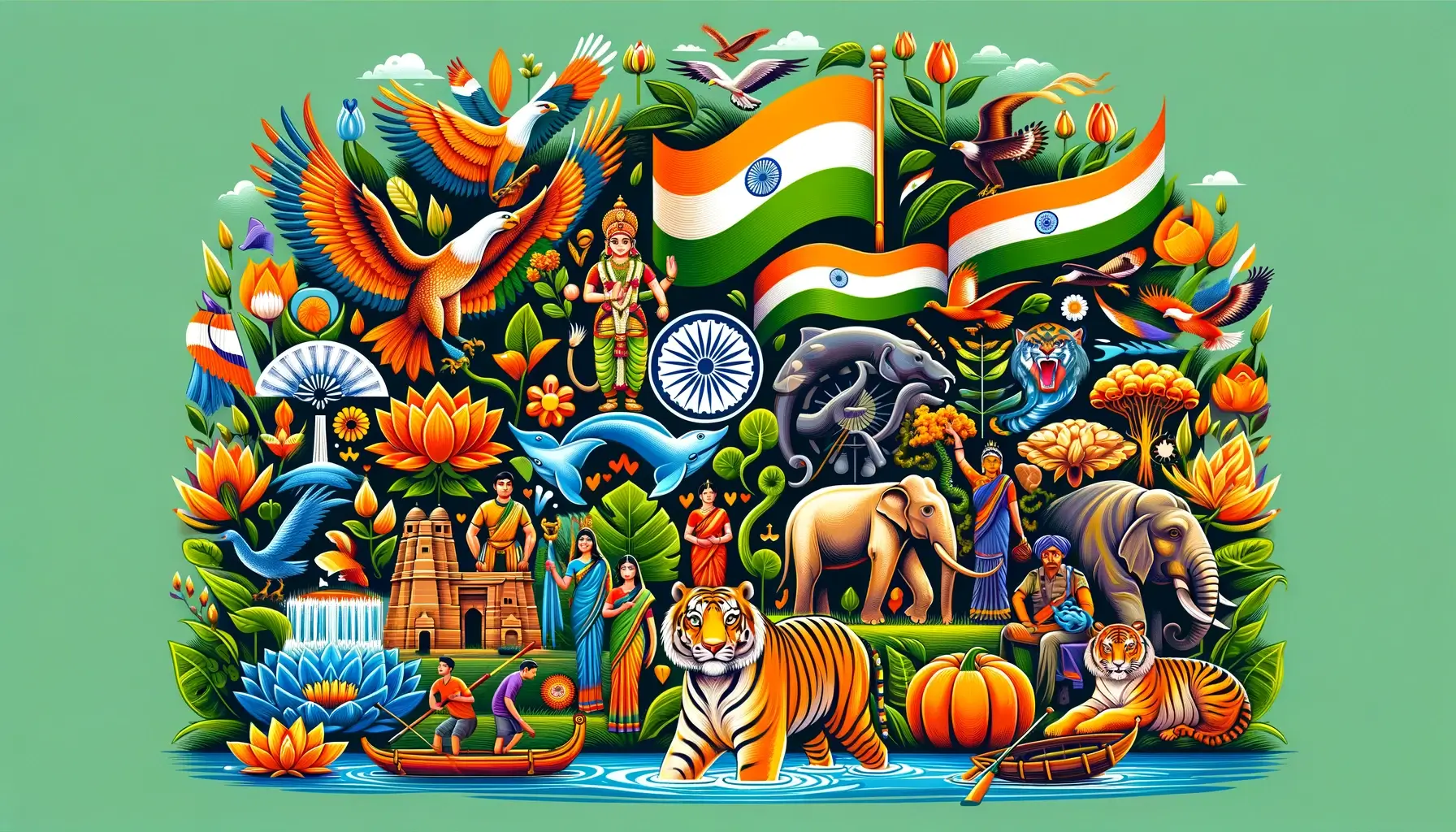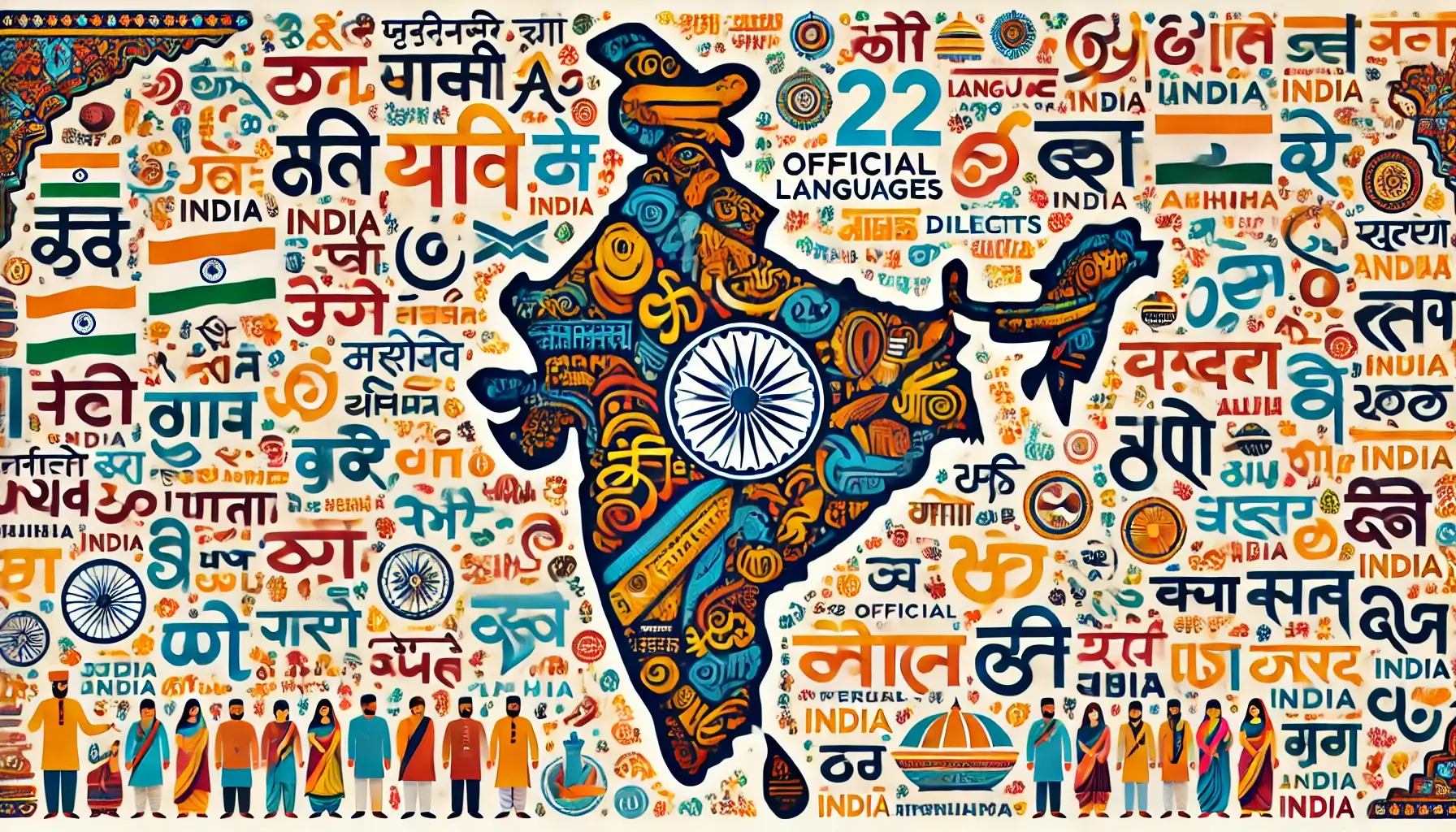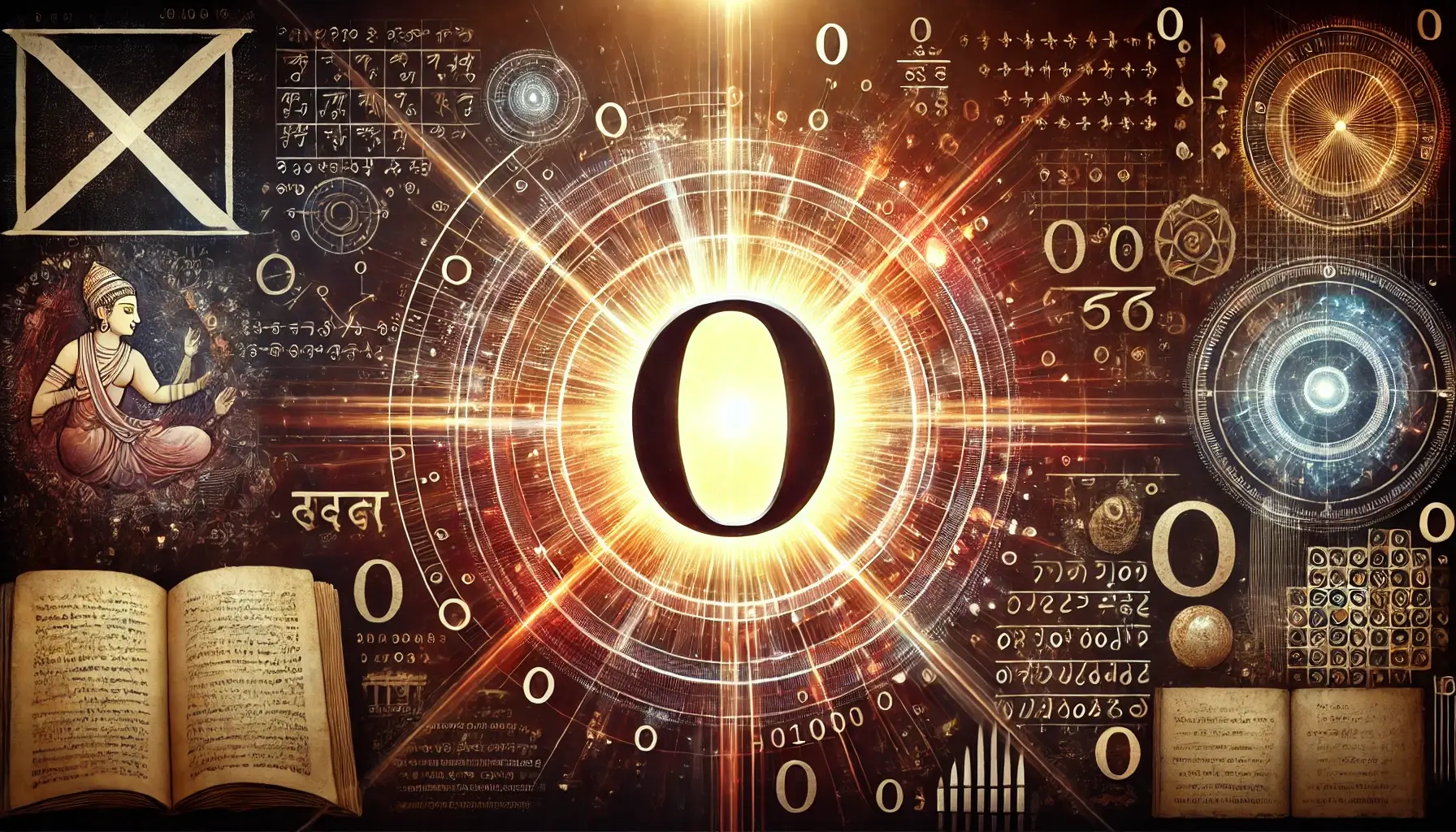Latest Blog Posts on India's National Symbols: A Reflection of Cultural and Natural Heritage, India's Linguistic Diversity: 22 Official Languages and 1,600 Dialects, Invention of Zero: A Revolutionary Concept, Hinduism: The Oldest Religion in the World
India's National Symbols: A Reflection of Cultural and Natural Heritage
India’s National Symbols
- National Anthem:
Jana Gana Mana - National Song:
Vande Mataram - National Flag:
Tiranga(Tricolor) - National River:
Ganga - National Bird:
Indian Peacock - National Flower:
Lotus - National Fish:
Gangetic River Dolphin - National Animal:
Royal Bengal Tiger - National Tree:
Banyan Tree - National Snake:
King Cobra - National Game:
Hockey - National Symbol:
Ashoka Chakra - National Calendar:
Saka Calendar - National Heritage Animal:
Indian Elephant - National Vegetable:
Pumpkin
India's Linguistic Diversity: 22 Official Languages and 1,600 Dialects
India has 22 official languages and over 1,600 dialects. Hindi is spoken by 43% of the population, followed by Bengali at 8%. Other regional languages include Telugu, Marathi, Tamil, Gujarati, Kannada, Urdu, Malayalam, Odia, Punjabi, Assamese, Maithili, and Sanskrit, spoken by 2-7%. This linguistic diversity highlights India’s vast cultural heritage and the richness of its regional identities.
Invention of Zero: A Revolutionary Concept
The concept of zero was invented in ancient India, with significant contributions by the mathematician Aryabhata in the 5th century CE and later formalized by Brahmagupta in the 7th century CE. Brahmagupta defined the rules for using zero in mathematical operations, such as addition and subtraction, laying the foundation for its application in algebra. This invention revolutionized mathematics by enabling a place-value system, making complex calculations possible.
Hinduism: The Oldest Religion in the World
Hinduism is widely regarded as the oldest religion in the world, with roots dating back over 5,000 years. Originating in the Indian subcontinent, Hinduism is a complex and diverse belief system, featuring numerous gods, rituals, philosophies, and sacred texts such as the Vedas and the Upanishads. It emphasizes the concepts of karma (actions), dharma (duty), and moksha (liberation from the cycle of rebirth). Unlike many religions, Hinduism has no single founder or central authority, and its flexible nature has allowed it to evolve over millennia, making it a deeply influential and enduring tradition.



